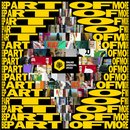Become a Video Producer
Tips on how to land a job as a producer from professional video producers

The role of the video producer in the creative industry is to manage and coordinate the production process for anything from music videos and TV commercials to full-length features. Production is a hands-on job that has a wide range of facets, from the early stages of creative development, through to ensuring smooth logistics during production (including pre- and post-production stages), keeping track of budgets, decision-making and distribution.
Producing video is a career that doesn’t necessarily require formal training or qualifications so much as on-the-job learning, hard work and creativity. We spoke to six professional producers (including a former producer who is now a commissioner) who have worked on all manner of video projects, from commercials to music videos, about how to break into the industry, and what it takes to excel once you’re in the door.
Always have a ‘can-do’ attitude
Video production is a task that involves a lot of teamwork, with the producer acting as a linchpin holding the process together at every stage. That means that a producer, whatever level they’re at, needs to be ready to muck in and get their hands dirty wherever it’s necessary to get the job done. It’s also up to the producer to make sure that the whole team is on board with this mission. Milana Karaica, Founder and Executive Creative Producer of Nerd Productions, who has worked with with clients including Citroën and Sephora, and is a New Blood Judge says, “When things are most challenging and stressful, you are the one that needs to be the source of calm and of reason. So don’t ever walk on set and expect your team to do things just because you feel they should. Everyone on the team is of importance, and if your runner doesn’t do a task correctly, it will affect someone else and so on.”
Kerstin Emhoff, Co-Founder and CEO of Prettybird, a production company whose output has won Grammys, Emmys and D&AD Pencils (including three Yellow Pencils for the Melina Matsoukas-directed You Love Me for Beats by Dr. Dre), says that a good producer takes a positive attitude no matter the task. “Producers get the reputation of always being the naysayers and sometimes that is the case,” she says. However, “the best producers are the ones who always start with a Yes and try to find a way to make it happen. People know that when I say 'No', it’s because I tried every possible way to make it happen and couldn’t.”
Get started as a runner or assistant
All the producers we spoke to told us about the importance of learning on the job from the beginning of your career, getting experience in the industry rather than particular qualifications or formal education. Elena Argiros, who is now a Commissioner at Sony Music and has commissioned music videos for the likes of Mimi Webb, Headie One and London Grammar, started out in commercial and music video production. “In production, experience is key, so running and production assistant work can be a brilliant entry point, accessible regardless of education level,” she explains. “I hadn’t been to university myself. I very much enjoyed learning on the job. I’d advise aspiring producers to take jobs as runners and production assistants and learn as much as they can from the producers they work closely with.”
Jules de Chateleux, Executive Producer at DIVISION, which produced the Yellow Pencil-winning film Francesca in the 2021 Awards, agrees. “On paper, I could – quite reasonably – be accused of having lacked the necessary qualifications for such a job, but the beauty of film is that it’s one of the most open, fluid and impertinently fresh thinking industries I can think of. It feeds on and welcomes anyone with a good idea, some persistence and a decent imagination. That, essentially, is all you need.”
Keep your eye on the master plan
Shepherding a large-scale piece of creative work, involving so many different people and moving parts, requires focus. Not just on the task at hand but also on the bigger picture. A good producer can see both the details of a project – putting out logistical fires – and also the overall vision. Jules de Chateleux explains the importance of keeping one eye on the master plan for each project. “Your coherent vision is the instrument that will regulate and inform every decision and every stage of the production, once it starts moving forward,” he says. “You should also be clear with yourself and others regarding your role in the production, as well as about the direction in which you intend to take it. Finally, the note to self should always be to ask why and for who.” With these key things in mind from the beginning, the production process can move ahead more smoothly.
Know every detail
Much of a producer’s role is about keeping abreast of everything that’s happening with a project, so you’re better placed to fix any problems that could arise. Whether starting out or working in a senior position, keeping in the loop can be the difference between a project that runs smoothly or one that hits roadblocks along the way. Milana Karaica suggests ensuring that the lines of communication open at all times, even if it feels like doing so might make you look unaware. “If you are not sure of something, always speak to your crew or team,” she says. “There is no shame in not knowing and there’s no point of pretending you know, as it will only backfire on you later down the line. The implications of that could not only be embarrassing, but could also be damaging to your team, clients and yourself. Talking over best approaches, trusting others and being a part of your team is the most delightful - and most productive - way to work on any production, no matter the challenge.”
Align yourself with the people you believe in
One way to stand out in a sometimes-crowded field is to distinguish yourself through the kind of work that you produce and the people you work with. This can help set you up for a sustainable and fulfilling career, packed with projects that challenge you and keep you engaged in the work at hand. Peter Davis, Partner/Producer at Toronto’s Untitled Films, has been in the industry for over 40 years. “I have always aligned myself with good creatives and good work,” he explains. “I pulled out a niche for myself as someone who line produced bigger and harder jobs. It was just more challenging and interesting. And then making everything work for the direction that they wanted, but then also making it work for the production company, for the money they had. With Untitled Films, it's always been about ideas and good work, as opposed to just making money or making TV commercials.”
Similarly, Mike Hasinoff, Executive Producer, Film, at Droga5, who has worked with the likes of Facebook, YouTube and Uniqlo says: “For me, awards and recognition are fun, but there are two types of achievements that I’m most proud of. The first is that thrill when the team and I have given an unexpected collaborator their first big opportunity, and then, through that collaborator’s hard work and dedication in partnership with us, they crush it with the job and go on to huge international success. At a smaller level, it’s the same feeling I get when I passionately believe someone is the best director for a project. Though others on the team don’t necessarily see it up front, they trust my instincts and agree to a call and let the person treat, then that person blows everyone away with their treatment and wins the job. The second big achievement comes with mentoring young producers and witnessing that moment when everything just clicks for them—they’ve put in the work, and their natural intuition matches the knowledge and experience I tried to impart. I’ve been lucky enough to see this firsthand, and nothing has made me prouder.”
Play the long game
Hasinoff’s advice for emerging producers is also to just keep going, stay focused and try to learn as much as possible. “For the first several years of your career, it’s this constant roller coaster of excitement and dread that keeps you up at night,” he says. “But, over time, you learn to live in this in-between space, and your hard work and dedication to the craft enable you to have adventures around the world, making mini movies with some of the world’s best creative minds.”
Eventually, he says, the hard work pays off. “If you’re focused on and committed to learning your craft, there will come a time when everything just clicks for you, too. The constant fear of failure and being found out will be replaced by a quietly growing confidence in your intuition and abilities. You’ll have built a network of close friends and support around yourself – those other producers that you know you can go to for help in any crisis – and you’ll find your voice as a producer, that special thing you bring to a project that is just yours.”
Sign up now



